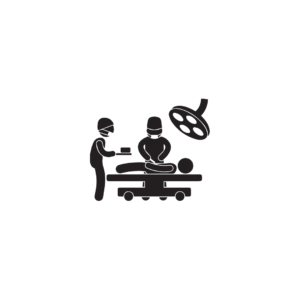Description
Overview of Bachelor of Science in Optometry
The Bachelor of Science in Optometry is a professional undergraduate program that prepares students to become optometrists, specialists in eye care. This program provides a comprehensive understanding of vision science, eye health, and the optical systems involved in visual processes. Graduates are trained to perform eye examinations, diagnose eye diseases, and prescribe corrective lenses or other visual aids.
Core Areas of Study in B.Sc. Optometry
Introduction to Optometry
Overview of the optometric profession, including the scope of practice, roles, and responsibilities of optometrists.
Human Anatomy and Physiology
Detailed study of the human body with a focus on the anatomy and physiology of the eye, visual pathways, and related systems.
Optics and Visual Science
Understanding the principles of optics, light behavior, and how these principles apply to vision and the corrections used in optometry.
Refractive Error and Binocular Vision
Study of common refractive errors (myopia, hyperopia, astigmatism) and binocular vision disorders, along with assessment strategies.
Clinical Optometry
Practical training in performing comprehensive eye examinations, using diagnostic equipment, and applying clinical skills in real settings.
Ocular Diseases and Therapeutics
Knowledge of common eye diseases, their pathophysiology, diagnosis, and management, including topical and systemic treatments.
Contact Lens Fitting and Management
Techniques for fitting various types of contact lenses and managing patients’ needs related to contact lens wear.
Pediatrics and Geriatric Optometry
Specialized care approaches for pediatric and geriatric populations, considering their unique needs and visual challenges.
Public Health and Preventive Optometry
Importance of public health in optometry, including community outreach, preventive care strategies, and education on eye health.
Ethics and Professionalism
Discussion of ethical issues in optometry, patient confidentiality, consent, and the professional conduct expected in practice.
Curriculum Structure
A typical Bachelor of Science in Optometry program may include:
Core Courses: Fundamental subjects covering anatomy, optics, and clinical practices in optometry.
Practical Labs and Clinical Practice: Hands-on training in simulated environments and clinical settings focusing on eye examinations and patient care.
Elective Courses: Opportunities to explore specialized areas such as low vision rehabilitation, sports vision, or advanced contact lens fitting.
Research Project or Capstone: A project that allows students to engage in research related to optometry or conduct a clinical case study.
Admission Requirements
Admission to a B.Sc. in Optometry program usually involves:
A high school diploma with a strong emphasis on science courses, including biology, chemistry, and physics.
A minimum GPA as specified by the institution.
Some schools may require standardized test scores (e.g., SAT, ACT).
Letters of recommendation and a personal statement outlining the candidate’s interest in optometry.
Skills Developed in a B.Sc. in Optometry Program
Graduates of the Bachelor of Science in Optometry program will develop various essential skills, including:
Clinical Skills: Proficiency in conducting eye exams, interpreting results, and diagnosing visual disorders.
Technical Proficiency: Skilled in using advanced diagnostic equipment and technology used in eye care.
Patient Management: Ability to effectively communicate with patients, provide education on eye health, and manage their treatment plans.
Problem-Solving Skills: Strong analytical skills to assess visual problems and determine appropriate solutions or referrals.
Attention to Detail: Critical focus in examining patients and interpreting visual data accurately for treatment.
Career Opportunities
Graduates with a Bachelor of Science in Optometry can pursue various career paths, including:
Optometrist
Providing eye care services, diagnosing and treating visual disorders, and prescribing corrective lenses.
Contact Lens Specialist
Focusing on fitting and managing contact lenses for patients with unique vision needs.
Vision Therapist
Working with patients, particularly children, to address visual perceptual and binocular vision issues.
Low Vision Rehabilitation Specialist
Helping individuals with vision impairments maximize their remaining vision and improve their quality of life.
Researcher in Vision Science
Engaging in research related to vision health, new technologies, and advancements in optometry practices.
Conclusion
The Bachelor of Science in Optometry provides a strong foundation for a rewarding career in eye care, equipping students with the necessary knowledge and skills to enhance patients’ visual health. By combining theoretical learning with practical experience, graduates are prepared to meet the diverse needs of their communities and contribute to advancements in the field of optometry. If you have more questions about the B.Sc. in Optometry program or related topics, feel free to ask!









